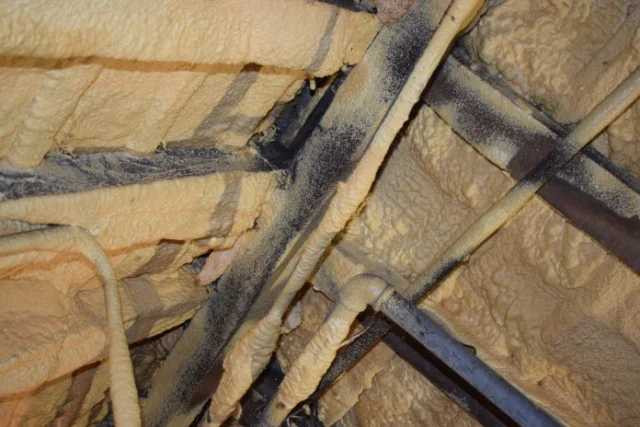
More than seven years after the tragic Grenfell Tower fire, the UK government has taken decisive action to accelerate the removal of unsafe cladding from buildings across England. In a significant update to the Remediation Acceleration Plan, announced on 17 July 2025, new legal deadlines have been set for landlords to complete remediation works, backed by severe penalties for non-compliance. This move aims to address the ongoing crisis that has left thousands of residents living in unsafe conditions for far too long.
Key Deadlines and Penalties
The updated plan introduces strict timelines for landlords to ensure the safety of their buildings. For buildings over 18 metres in height, all remediation work must be completed by the end of 2029. For buildings between 11 and 18 metres, the deadline is set for the end of 2031. Failure to meet these deadlines without a reasonable excuse will result in criminal prosecution, with potential penalties including unlimited fines and imprisonment. This marks a significant escalation in the government’s approach, aiming to hold landlords accountable and ensure that residents are no longer left in limbo.
| Building Height | Remediation Deadline | Penalties for Non-Compliance |
| Over 18 metres | End of 2029 | Criminal prosecution, unlimited fines, imprisonment |
| 11–18 metres | End of 2031 | Criminal prosecution, unlimited fines, imprisonment |
Legislative Framework
To enforce these deadlines, the government plans to introduce a new Remediation Bill, which will make the duty to remediate a legal requirement. This legislation will also grant powers to bodies such as Homes England and local authorities to step in and carry out remediation works if landlords fail to act, ensuring that progress is made even in cases of non-compliance. The bill is expected to be brought forward as soon as parliamentary time allows, underscoring the urgency of the situation.
Funding and Support
Recognising the financial burden on social landlords, the government has committed over £1 billion to support remediation efforts in the social housing sector. This funding aims to level the playing field, giving social landlords equal access to government funding schemes as their private sector counterparts. The Cladding Safety Scheme has been expanded to include buildings under 11 metres in exceptional cases, further broadening the scope of support. Additionally, the Building Safety Levy, set to take effect in October 2026, is expected to raise £3.4 billion over ten years to fund remediation efforts. Exemptions for affordable, supported, and small-scale housing, along with discounts for previously used land, will help balance safety and affordability.
Progress and Challenges
Despite these measures, the pace of remediation has been criticised as too slow. As of June 2025, only 44% of the 2,800 social housing buildings identified with unsafe cladding in England had begun remediation works. This statistic underscores the urgency of the government’s new approach and the need for accelerated action. The plan also includes measures to identify all buildings over 11 metres with unsafe cladding, with a National Remediation System to track progress and ensure transparency. Over £5 million has been allocated to Metro Mayors to develop Local Remediation Acceleration Plans, further supporting regional efforts.
Voices from the Top
Housing Secretary Angela Rayner emphasised the importance of this plan, stating: “More than seven years on from the Grenfell tragedy, thousands of people have been left living in homes across this country with dangerous cladding. The pace of remediation has been far too slow for far too long. We are taking decisive action to right this wrong and make homes safe. Our Remediation Acceleration Plan will ensure those responsible for making buildings safe deliver the change residents need and deserve.”
Building Safety and Fire Minister Alex Norris added: “We are determined to make buildings safe and protect residents. Since publishing our Remediation Acceleration Plan, we’ve made strong progress, and this update goes further to drive accountability and remove barriers to speed up remediation. There is now a clear pathway to remediate every building with unsafe cladding. We expect everyone to play their part in giving residents and leaseholders the peace of mind that they deserve.”
Impact on Stakeholders
This updated plan has wide-ranging implications for various stakeholders:
- Landlords and Developers: Faced with legal obligations and potential penalties, landlords and developers must prioritise remediation works to avoid legal repercussions. The Developer Debt Collection programme, involving 53 major developers, aims to recover £700 million for taxpayer-funded remediation, with £120 million expected in 2025/26.
- Leaseholders and Residents: The plan offers hope for safer living conditions, though the timelines may still seem distant for those currently residing in affected buildings. Continued support to reduce reliance on measures like Waking Watch is also part of the plan.
- Social Housing Providers: With dedicated funding, social housing providers are better equipped to address safety issues, but the scale of the problem requires efficient allocation and utilisation of resources.
Addressing Criticisms
While the government’s plan has been welcomed for its ambition, campaigners from groups like End Our Cladding Scandal have called it “extremely disappointing” and “performative,” citing uncertainties for leaseholders and the need for more immediate action. The long timelines, particularly for medium-rise buildings, may leave some residents feeling vulnerable. The government has responded by emphasizing enforcement, with over 50 local authorities already taking action against 483 buildings and plans to strengthen the Building Safety Regulator’s capacity.
A Path Forward
The government’s latest update to the Remediation Acceleration Plan represents a critical step forward in addressing the unsafe cladding crisis. By setting legal deadlines, introducing robust enforcement mechanisms, and providing substantial funding, the plan aims to ensure that all buildings with unsafe cladding are remediated within specified timeframes. While challenges remain, particularly in accelerating progress and addressing leaseholder concerns, this decisive action signals a commitment to learning from past tragedies and prioritising the safety of residents across England.





